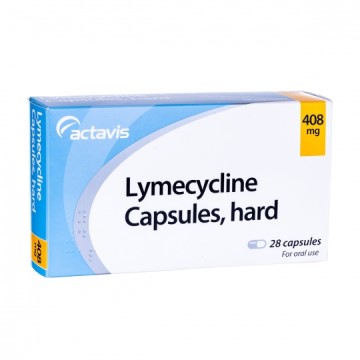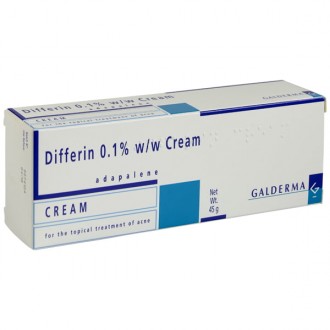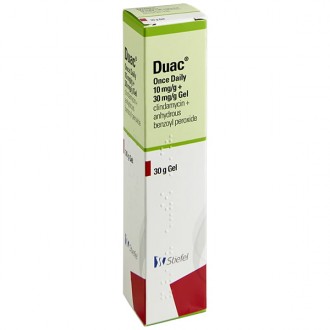
Acne: Causes & Treatments
What is acne?
Acne is a skin condition which most people experience. It causes spots, oily skin and may be red, sore and irritated.
It is common in teenagers due to an increase in testosterone during puberty. In adults, women are more likely to experience acne due to hormone changes during menstruation, pregnancy and the menopause.
Can acne be hereditary?
Acne is known to run in families so the likelihood is that if one or both parents suffered with acne, you’re more likely to.
Causes of acne
The skin has tiny holes called hair follicles and when these become blocked, this causes acne.
Glands known as sebaceous glands act as a natural lubricant for skin and hair. When these glands produce too much sebum, skin becomes oily and acne occurs as it blocks the follicles.
A blocked follicle which is open to the skin creates a blackhead, whereas a blocked follicle close to the skin bulges and creates a whitehead.
Although anyone may experience acne, it’s common in teenagers due to increased testosterone.
It may also be hereditary.
Some common triggers of acne
There are many possible factors which could irritate skin and trigger acne outbreaks. These may include:
- Poor ventilation - if skin isn’t properly allowed to breathe, acne may be more likely to occur. This may include if you regularly wear a face mask or backpack for example
- Some medications - some types of prescribed medication such as steroids or lithium which affect hormones may cause outbreaks
- Certain creams, cosmetics or facial products - all cosmetics undergo rigorous testing before being sold nowadays so although an acne flare-up is less likely to occur, particular products may not suit your skin
Tips for managing acne
Do not be tempted to ‘pop’ or get rid of spots as this can leave scarring
Maintain a healthy, balanced diet and limit intake of carbohydrates and saturated fats
Drink plenty of water. This is good for skin and helps to keep hydrated
Limit yourself to facial washes no more than twice a day. Washing your face too often may cause further irritation
Cut down on the amount of cosmetics you use on a daily basis. When you do use cosmetics, choose water-based products
Avoid using very hot water and use a mild sensitive soap for facial washes
Shower after exercise so that sweat doesn’t irritate the skin further
Do not sleep in makeup, always remove this before bed
Avoid greasy hair from contacting your face and wash hair regularly
Acne treatments
What acne treatments are available?
There is a range of acne treatments available, depending on how severe the outbreaks are.
For some people, over-the-counter treatments such as facial washes and creams will help to reduce the appearance of acne.
However, where acne is more severe, a prescription may be required to treat acne. Treatments range from antibiotic tablets to topical creams and gels to treat the affected area.
Are prescribed treatments effective?
Prescription acne treatments have been tested and proven to be effective. They help to fight bacteria on the skin, reduce the appearance of spots and reduce inflammation and redness.
Acne tablets
Prescription tablets for acne include Oxytetracycline and Lymecycline.
Oxytetracycline works by fighting the bacteria that cause acne and prevent further bacteria growth and outbreaks.
Lymecycline is a once daily medication that helps to remove harmful bacteria from the body which causes acne.

Acne creams
Acne creams allow topical application to the affected areas. Creams include Differin, Zineryt and Skinoren.
Differin contains adapalene, a vitamin A that works to stop pores from clogging, therefore preventing acne.
Zineryt has two active ingredients that work together to control and prevent outbreaks. Zinc contains healing properties, while erythromycin prevents growth and spread of bacteria. It comes in an easy application roll-on.
Skinoren contains azelaic acid to reduce bacteria that clogs pores and kills the bacteria responsible for outbreaks.

Acne gels
Duac is a topical gel that’s available in two strengths. It contains Benzoyl Peroxide to clear pores and Clindamycin fights the bacteria.
Epiduo also contains Benzoyl Peroxide to clear pores, while adapalene reduces skin inflammation and swelling.
Zindaclin gel contains clindamycin phosphate, which helps to clear spots. It decreases redness and reduces the number of bacteria.
Isotrexin contains active ingredient isotretinoin. It is designed to reduce the visibility and appearance of blackheads and whiteheads and prevent further formation of spots.
Treclin contains Clindamycin to kill bacteria and tretinoin to shed dead skin cells and keep pores clear.

How do acne treatments work?
Antibiotic tablets work the same way as they do for fighting other infections. They help to remove harmful bacteria from the body which cause acne.
Topical gels and creams are usually dual action - two active ingredients work together to fight bacteria whilst reducing the appearance of spots.
Need further advice?
Start a consultation online today for acne treatments. Simply fill in a few details and we’ll recommend the most suitable product for you.
If you still require further advice, get in touch with us and our qualified pharmacists will be more than happy to help.






